
When a lot of people think anarchy, they picture some kind of post-apocalyptic dystopia ruled by roaming bands of armed steam punks. When some urban hipsters think of anarchists, they think of artists, activists and panhandlers who wear a lot of black and grey and go to protests instead of work.
But that’s not what an anarchist is. In actuality, an anarchist is just someone who weighs the moral and practical benefits of a rule or a law before deciding whether or not to follow it it.
Most anarchists, in fact, obey most laws most of the time. But when they figure that a law or rule is immoral and/or unlikely to produce its intended outcome, they refuse to obey it — and might even speak out against it, or take to the streets in protest.
In short, being an anarchist doesn’t mean wanting to dissolve the state or abolish the rule of law (although some admittedly do). It means not accepting a law as legitimate just because the government said so.
Crossing the Street
Right now, you might be thinking something like “yeah, but, if we all do that, things would regress into that post-apocalyptic dystopia pretty quickly.” But the truth of the matter is that we allselectively choose what laws/rules to obey and when to obey them.
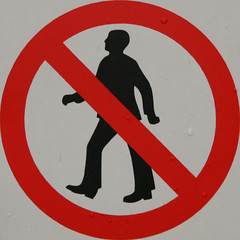
Take jay walking. We have jay walking laws so that people don’t get hit by cars and to keep traffic flowing smoothly. These laws generally state that you are only allowed to cross the street  at a crosswalk.
But most of us jay walk all the time. Simply put, we look around, judge for ourselves that there’s no real risk to ourselves or the flow of traffic, and cross the street from wherever we stand. That decision might change if there’s a cop standing there and we don’t want to get a ticket, but in most places, even the cops turn a blind-eye to jay walkers because they can see for themselves that we’re not posing a danger to ourselves or others by crossing the middle of the street.
Calculated Disobedience
Very few of us follow every rule blindly. Our personal morality and self-interest aside, whether we decide to obey some rule or law is usually a blend of three factors.
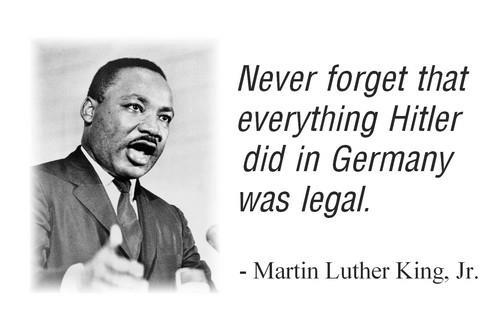 What’s the point?
What’s the point?
All rules and laws are intended to effect some kind of outcome. If we can’t see the point of a rule (or disagree with it because of personal morality and self-interest), we’re a lot less likely to play ball. Take jay walking, again: if there’s no traffic and I’m not at risk of getting hit by a car, I’ll probably just cross the street.
Does it work?
If we agree with the outcome of some rule/law, but think it unlikely to produce those results, we’re probably less likely to obey them. To go back to jay walking: these bylaws are intended to keep us safe, but when there’s no traffic, and we’re not in any danger, we’re probably just going to cross the street wherever we please.
What are the risks?
This is probably the biggest determination in our obedience to a rule/law (and the biggest justification for law enforcement measures and the penal system). If we don’t agree with a rule/law, or think it unlikely to effect its intended outcome, then the only question that remains are “what will happen to me if I disobey?”
At one extreme, the chances of getting caught can be high, but the consequences low — like with parking tickets. At the other end, the consequences of breaking the rule/law can be big, but the chances of getting caught are low — like with poaching or some forms of tax evasion. And then there all kinds of shades of grey in between.
The point is that we follow a lot of rules/laws out of fear, and not because we agree with it or think that it might work. This is where coercion or oppression comes in: we obey simply because we are forced to out of fear of some reprisal by some entity more powerful than us.
Anarchy and Disruption
There’s this popular concept in the tech world called “disruption.” This is when new technology allows someone to enter a market and “disrupt” the incumbents by challenging the “way things are done” because of some new technology or method that the incumbents didn’t have access to.
 In other words, there are established rules or process for “doing business” or “going to market” and then some disruptive newcomer is able to challenge them (and maybe even shake them to their knees) because they’ve found a way to use technology so that the rules no longer (1) have a point, and/or (2) do what they’re supposed to do, or (3) hold any consequences for those who challenge or defy them.
In other words, there are established rules or process for “doing business” or “going to market” and then some disruptive newcomer is able to challenge them (and maybe even shake them to their knees) because they’ve found a way to use technology so that the rules no longer (1) have a point, and/or (2) do what they’re supposed to do, or (3) hold any consequences for those who challenge or defy them.
Google did this to Yahoo and AskJeeves and so many other. Amazon did this first to record stores and then to other retailers. Zappos did it to shoe retailers. And Craigslist did it to classifieds.
The point is that challenging the legitimacy of rules is what moves us forward. By questioning the validity of some rule (or “law,” in the market sense of the term) is what allows us to innovate and make progress.
Be an Anarchist
It is no measure of health to be well adjusted to a profoundly sick society.
–Jiddu Krishnamurti

It’s easier to defy market rules than it is laws. You might lose some money, but your personal liberty won’t be at stake.
But the point is that it’s questioning the validity (or point or efficaciousness) of a rule/law is what moves us forward. If we just accept the status quo, they we are stuck with it. We accomplish nothing new and exciting and we don’t move forward.
There is already an anarchist inside of you — that part of you that calls bullshit and shenanigans on the things that just don’t make sense to you.
Embrace that anarchist. Nurture it and respect it and guard it with your life, because that’s your inner child, and it’s the only thing standing between you and the complete and utter oblivion of conformity — and existential suicide.
More importantly, though, it’s the part of you that will push compel you to make your life and this world a better place.
Question everything, constantly. Because if you don’t, you’re just accepting the limitations that other (more powerful) people have imposed on you for their own personal gain.
Most of the rules we follow make perfect sense — but only within a certain context. Beyond that context, they are ruses that lure us into being mindless automatons that uphold a status quo that benefits a privileged few a lot more than they benefit us or the greater good of the people around us.
Just think about it: What rules/laws do you follow that cause more harm than good? That set us back more than they propel us forward?




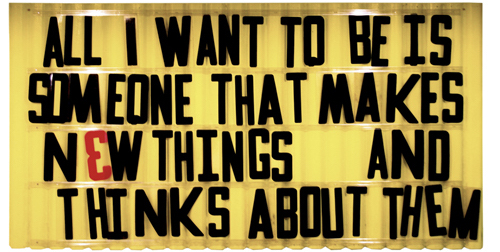

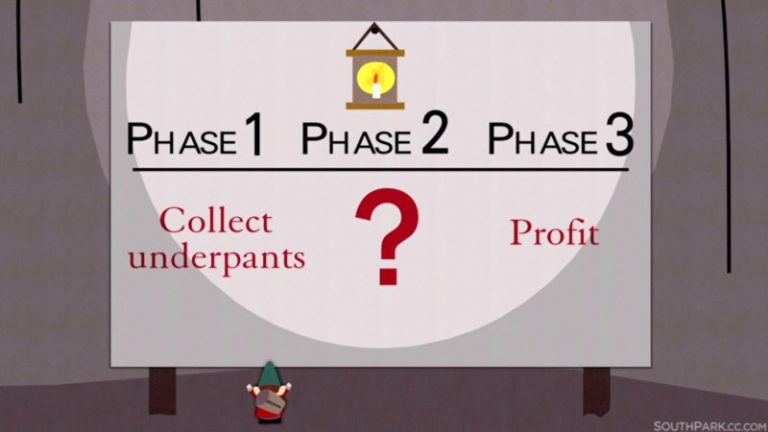
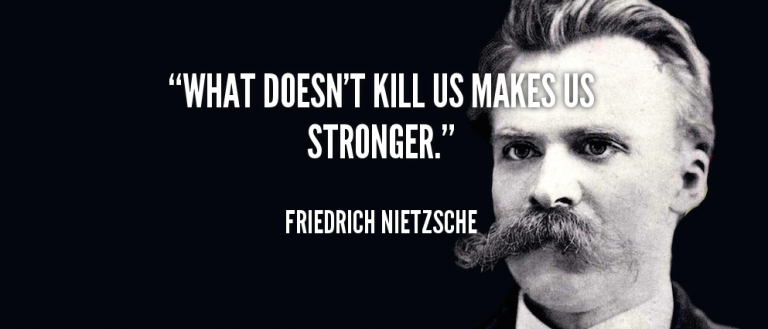


Interesting post. I did want to comment on your definition of an anarchist. If we left all laws up to interpretation they would lose their purpose. Some laws are too broad, too weak or miss the mark, but it’s their precise language that determines whether you are on the abiding or the breaking side.
What you seem to describe are principles, like the charter of human rights. These are moral compases, and use vague language that embodies a people’s values rather than their implementation.
Given the poor judgement of the average individual (smoking, obesity, excessive partying, not saving for the future of oneself and that of one’s children, etc), I am glad we have concrete laws. You know when you are breaking them. If another thinks he’s not doing any harm by jaywalking (or drinking behind the wheel), then that’s his risk to take.
You have a point. What I was trying to get is the importance of questioning (and maybe even opposing) the “legitimacy” of some laws. Too often, we accept something as “right” or “good” just because it’s “the law” or because it’s “legal”.
Just as there are plenty of bad laws, there are plenty things that are legal that shouldn’t be (just take the MLK quote above).
Admittedly, though, it isn’t easy to mediate competing interests and maintain civil society if everyone simply does what they want. There’s a good essay on just all these points by Robert Paul Wolff: http://en.wikipedia.org/wiki/In_Defense_of_Anarchism
What I think is important, though, is that we question why we’re following rules/laws and make an active decision to obey or disobey them, rather than just following them blindly.
Questioning laws is very important. Too often, laws outlast the society that created them, becoming irrelevant or no longer in line with modern values. Any religion that codifies specific rules rather than grouping together ideals falls into this archaic category. Yet a society not founded on clearly defined right and wrong boundaries falls to the people most capable of their abuse.
Anarchy always seemed like the rebellious period in a teenagers life. Absolutely necessary yet naive. It’s a phase I recommend everyone go through in much the same way I recommend new programmers experiment with structure and syntax before understanding why methodology exists in its present state.
It is only through the learning of laws, then dismissing them entirely, can we understand the happy middle we currently live in. Democracy in no way a perfect system, but it has been the safest (most structured) and most flexible system yet.